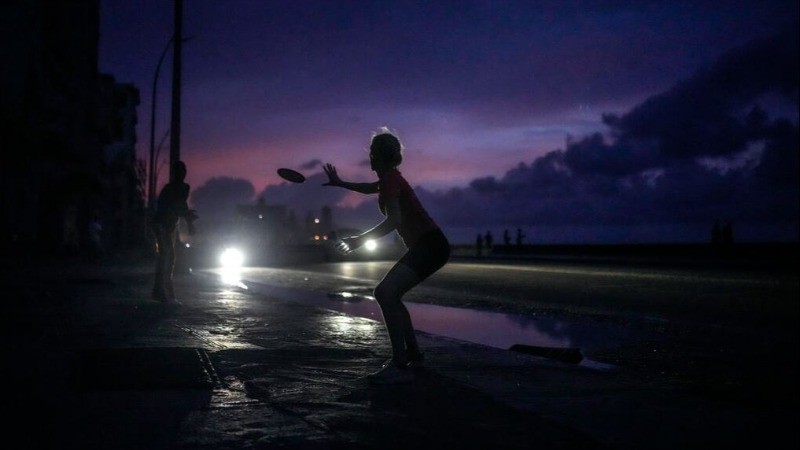
Cuba's electrical grid experienced another collapse on October 2o, marking the fourth failure in just 48 hours. This latest incident coincided with the landfall of Hurricane Oscar, worsening the challenges for the island's already fragile infrastructure.
Earlier on Sunday, the government announced it was making progress in restoring electricity after a series of setbacks, but millions remained without power more than two days after the initial collapse. “Restoration work began immediately,” stated the country’s energy and mines ministry on social media.
Hurricane Oscar brought powerful winds, a significant storm surge, and heavy rain to eastern Cuba. The national meteorological service warned residents of “an extremely dangerous situation,” while the U.S. National Hurricane Center reported winds of up to 75 miles per hour (120 kph) as the storm moved across the island.
In response to the hurricane and ongoing energy crisis, the Cuban government canceled school until Wednesday, an unusual measure in the country, and advised only essential workers to report to work on Monday.
The grid failures are a significant setback for the government’s efforts to restore power to residents who are already dealing with severe shortages of food, medicine, and fuel. The complications faced in restoring power highlight the precarious state of Cuba’s electrical infrastructure.
Before the collapse, power had been restored to approximately 160,000 clients in Havana, providing a glimmer of hope for some residents. However, housewife Anabel Gonzalez from Old Havana expressed her frustration after three days without electricity. “My cell phone is dead, and look at my refrigerator. The little that I had has all gone to waste,” she lamented, pointing to the empty shelves in her home.
Energy and mines minister Vicente de la O Levy expressed hope that the grid would be fully functional by Monday or Tuesday but cautioned residents to manage their expectations regarding improvements.
The national electrical grid first crashed on Friday after the shutdown of the island’s largest power plant, causing chaos. After some progress in restoring power, another partial collapse was reported on Saturday.
O Levy acknowledged the distress caused by the blackouts but noted that most Cubans understand and support the government's restoration efforts. “It is Cuban culture to cooperate,” he said. “Those isolated and minimal incidents that do exist, we catalog them as incorrect, as indecent.”
Internet traffic in Cuba plummeted over the weekend, with monitoring group NetBlocks reporting that widespread power outages made it difficult for residents to charge their phones or access the internet. “Network data show that Cuba remains largely offline as the island experiences a second nationwide power outage,” they stated.
The government has attributed the increasing frequency of blackouts, which can last 10 to 20 hours daily, to deteriorating infrastructure, fuel shortages, and rising demand. Cuba also cites the U.S. trade embargo and sanctions from the previous administration for difficulties in acquiring necessary fuel and spare parts for its aging oil-fired plants.
Despite these claims, the U.S. has denied any responsibility for the failures. Cuba relies heavily on imports to run its outdated power plants, and this year has seen a significant drop in fuel deliveries from Venezuela, Russia, and Mexico, previously key suppliers.
Venezuela has cut its subsidized fuel shipments to Cuba by half, while Mexico has also reduced its fuel exports, especially during an election year. The newly elected President Claudia Sheinbaum has yet to clarify whether fuel supplies to Cuba will continue under her administration.